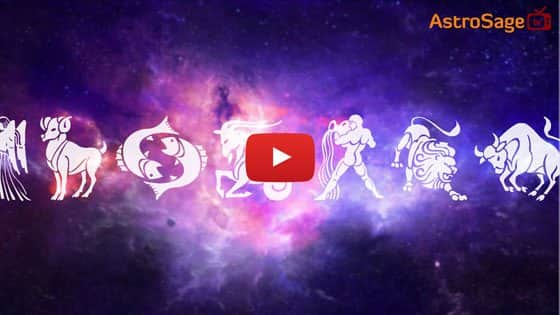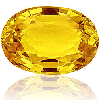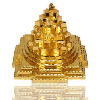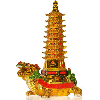List of Public Holidays 2020
![]() India is a multicultural country and thus we have numerous holidays in a year as
per Public Holidays 2020. The idea behind this is the peaceful-coexistence of all
the diverse religious and cultural communities in our country. The schedule for
public holidays in India is announced by the Government of India. Every year the
government releases its annual calendar which includes three categories of public
holidays. These are to be observed in the respective government offices during the
year. Following are those three categories.
India is a multicultural country and thus we have numerous holidays in a year as
per Public Holidays 2020. The idea behind this is the peaceful-coexistence of all
the diverse religious and cultural communities in our country. The schedule for
public holidays in India is announced by the Government of India. Every year the
government releases its annual calendar which includes three categories of public
holidays. These are to be observed in the respective government offices during the
year. Following are those three categories.
| GAZETTED | RESTRICTED | STATE AND UNION TERRITORIES |
| These are mandatory holidays | These are optional holidays | These are local holidays of the states and union territories |
PUBLIC HOLIDAYS 2020
Following is the public holidays 2020 list:
| January 2020 | ||
| Date | Day | Holiday |
| January 1 | Wednesday | New Years Day |
| January 14 | Tuesday | Lohri |
| January 15 | Wednesday | Makar Sankranti |
| January 15 | Wednesday | Pongal, Uttarayan |
| January 26 | Sunday | Republic Day |
| January 29 | Wednesday | Basant Panchmi |
| February 2020 | ||
| February 9 | Sunday | Guru Ravidas Jayanti |
| February 18 | Tuesday | Maharishi Dayanand Saraswati Jayanti |
| February 21 | Friday | Mahashivratri - Shivaratri |
| March 2020 | ||
| March 8 | Sunday | Hazarat Ali's Birthday |
| March 9 | Monday | Holika Dahan |
| March 10 | Tuesday | Holi |
| March 20 | Friday | Parsi New Year |
| March 25 | Wednesday | Chaitra Sukhladi, Chaitra Navratri , Ugadi , Gudi Padwa |
| April 2020 | ||
| April 1 | Monday | Bank's Holiday |
| April 6 | Monday | Mahavir Jayanti |
| April 10 | Friday | Good Friday |
| April 12 | Sunday | Easter |
| April 13 | Monday | Baisakhi |
| April 13 | Monday | Mesadi - Vaisakhadi |
| April 14 | Tuesday | Ambedkar Jayanti |
| May 2020 | ||
| May 7 | Thursday | Buddha Purnima - Vesak |
| May 7 | Thursday | Birthday of Rabindranath |
| May 22 | Friday | Jamat Ul-Vida |
| June 2020 | ||
| June 23 | Tuesday | Jagannath Rath Yatra |
| July 2020 | ||
| July 5 | Sunday | Guru Purnima |
| August 2020 | ||
| August 3 | Monday | Raksha Bandhan |
| August 11 | Tuesday | Janmashtami |
| August 15 | Saturday | Independence Day |
| August 22 | Saturday | Ganesh Chaturthi - Vinayaka Chaturthi |
| August 29 | Saturday | Muharram - Ashura |
| August 31 | Monday | Onam/Thiruvonam |
| October 2020 | ||
| October 2 | Friday | Mahatma Gandhi Jayanti |
| October 22 | Thursday | Maha Saptami |
| October 23 | Friday | Maha Ashtami |
| October 24 | Saturday | Durga Maha Navami Puja, Durga Puja Ashtami |
| October 25 | Sunday | Dussehra |
| October 26 | Monday | Durga Visarjan |
| October 29 | Thursday | Milad un-Nabi Id-e-Milad |
| October 31 | Saturday | Maharishi Valmiki Jayanti |
| November 2020 | ||
| November 4 | Wednesday | Karaka Chaturthi |
| November 14 | Saturday | Narak Chaturdashi |
| November 14 | Saturday | Diwali - Deepavali |
| November 15 | Sunday | Govardhan Puja |
| November 16 | Monday | Bhai Dooj |
| November 20 | Friday | Chhath Puja |
| November 24 | Tuesday | Guru Tegh Bahadur's Martyrdom Day |
| November 30 | Monday | Guru Nanak Jayanti |
| December 2020 | ||
| December 24 | Thursday | Christmas Eve |
| December 25 | Friday | Merry Christmas |
Know more about Indian Festivals & their Significance
PUBLIC HOLIDAYS 2020: STORIES BEHIND THE PUBLIC HOLIDAYS
A holiday brings moments of rest, comfort and happiness. So would it not be interesting to know what is the idea behind having them? Let us find out !
LOHRI: Celebrated at nearly the end of peak winter, Lohri is a folk festival of Punjab, associated with the harvest of Rabi crops. Celebrated by Sikhs and Hindus by singing and dancing around a bonfire.
PONGAL, UTTARAYAN, MAKAR SANKRANTI: According to the solar calendar, the Sun goes into different zodiacs on a particular day. On the 14th of January every year, the festival of Makar sankranti is observed, which also marks the rising of planet Sun in Capricorn. It is also known by the name Uttarayan, as from this day, the Sun begins to move northwards. In Kerala, the same festival is celebrated by the name of Pongal.
REPUBLIC DAY: 26th January, 1950 was the day when the Constitution of India came into force. Ever since then, this day is being celebrated as the Republic Day. It is one of the three national festivals of our country. On this day, the President of India hoists the Tricolor Flag at Rajpath in New Delhi, the country's capital. This is followed by a parade which begins from Rajpath and ends at the Red Fort.
BASANT PANCHAMI: On Basant Panchami , people in North India, especially Punjab, wear yellow clothes and fly kites to celebrate the arrival of the spring season. In Hindus, the goddess of learning and knowledge, Maa Saraswati is worshipped to gain direction for the new rise in their energies due to the onset of the spring season and the end of the winter season.
MAHASHIVRATRI: The festival is celebrated in honour of Lord Shiva on the night of New Moon in the month of Magh according to the traditional Hindu calendar. Mahashivratri, celebrated on the darkest night of the year, symbolises overcoming darkness and negativity in life. Most Hindus observe fasts during the day, carry out the process of Abhishek to Shivling with milk, flowers and fruits.
HOLIKA DAHAN: This festival derives its reason from a story from a mythological story mentioned in the Vishnu Purana which narrates of an evil king named Hiranyakashyap, who tried to kill his own son Prahlad because he was a stark devotee of Lord Vishnu. The story signifies that a true devotee of the Lord is always protected by Him. It is celebrated on the full moon night of the Hindu traditional month of Phalguna, by setting up a bonfire.
HOLI: It is the festival of love and colours celebrated with great pomp and show on the next day of holika dahan with colours. On this day, people rub colours on each other’s cheeks signifying that the bond between humans is greater than any community, class or race.
CHAITRA NAVRATRI: This is a nine-day Hindu festival while each day, a different incarnation of Durga, the Goddess of Power is worshipped. During this, most Hindus observe nine-day fasting. It is celebrated every year in the month of Chaitra by the traditional lunisolar calendar.
GUDI PADVA: The festival of Gudi Padva is celebrated to mark the traditional new year for the Marathi Hindus. It is celebrated in Maharashtra and some other nearby states on the first day of the month of Chaitra, every year.
AMBEDKAR JAYANTI: On the 14th of April every year, the birth anniversary of Babasaheb Bhimrao Ambedkar, the one who shaped the Constitution of India, is celebrated. Flowers and garlands are offered to him as a tribute.
GOOD FRIDAY: It is a Christian holiday to commemorate the day when Lord Jesus Christ was crucified and made the ultimate sacrifice to free his people from their sins.
MAHAVIR JAYANTI: It is celebrated by the people of Jain community to commemorate the birth of their twenty-fourth and last tirthankara, Vardhman, known by the name of Lord Mahavira.
AKSHAYA TRITIYA: Akshaya means non-perishable. The festival is celebrated in India and Nepal on the third lunar day of the bright fortnight or the shukla paksha in the traditional month of Vaisakha. People buy gold on this day as a symbol of imperishable wealth.
BUDDHA PURNIMA: A day observed in most East Asian countries where Buddhism is prominent as the birth anniversary of the enlightened one, Lord Buddha. It is celebrated every year in the month of Vaishakh or Vesak on the full moon night.
EID-UL-FITR: This festival marks the end of the holy month of Ramadan, during which, Muslims all over the world observe month-long fasting without taking a single drop of water during the day.
GURU PURNIMA: It is a tradition observed to honor spiritual and academic Gurus, who are evolved or enlightened humans for sharing their wisdom, with very little or no monetary expectations. The festival is observed on the full moon night of the Hindu month of Ashadha byHindus,BuddhistsandJains in India as well as Nepalto revere their chosen spiritual teachers and express gratitude towards them.
BAKRID/ EID-AL-ADHA: It is celebrated by the Muslims natives in honour of Ibrahim’s willingness to sacrifice his son out of obedience towards God’s command. Muslims on this day, sacrifice he-goats and then cook, distribute and eat it.
INDEPENDENCE DAY: This is an auspicious day when India finally got freedom from the British colonial rule on 15th August, 1947, when theUK Parliament passed theIndian Independence Act 1947. On this day, every year, the Prime Minister of India hoists the national flag at the Red Fort in New Delhi. It is a national festival of India, observed throughout the country with flag-hoisting ceremonies and various cultural events.
RAKSHA BANDHAN: On Raksha Bandhan sisters tie rakhi, which are beautiful threads on their brothers’ wrists as a symbol of their love for them.
JANMASHTAMI: Janmashtami is a Hindu festival marking the birth anniversary of Lord Krishna, the eighth incarnation of Lord Vishnu. On this occasion, Hindus observe fast during the day and participate in human pyramid making competitions and break dahi handis, pots filled with curd or butter.
GANESH CHATURTHI: This is a day dedicated to Lord Ganesha, celebrated with great pomp and show in the western India, especially in Maharashtra. People install clay idols of Lord Ganesha in their homes as well as publicly on pandals (temporary stages) and eventually perform visarjana.
MUHARRAM: It is the first month of theIslamic or Hijri calendar during which warfareis forbidden. Since theIslamiccalendar is a lunar calendar, the month of Muharram moves from year to year when compared with theGregorian calendar.
ONAM: Onam is celebrated in the Malayalam month of Chingam, and known to be the official festival of Kerala. Celebrations on this day include feasts, folk performances, boat races known as vallam kalli, traditional games and much more.
GANDHI JAYANTI: It marks the anniversary of the Father of our nation, Mohandas Karamchand Gandhi and now also the Swachh Bharat Diwas as declared by the Government. It is the third national festival of the country, after Independence day and Republic Day.
DUSSEHRA: Dussehra is celebrated about 20 days prior to Diwali, marking the victory of Lord Rama over Ravana, thus signifying the “victory of Good over Evil”. The festival is celebrated by week long plays of Raam-leela and eventually burning down the Ravana effigies nationwide.
KARWA CHAUTH: On this day, married Hindu women fast all day long without intaking a single drop of water, praying for the long lives of their beloved husbands and finally break their fasts with the sight of the moon.
GOVERDHAN POOJA: It is celebrated the very next day of Diwali. Kite-flying competitions are organised by people. It is to commemorate the mythical story of Lord Krishna lifting up the huge Govardhan Parvat on his little finger.
DIWALI: The festival of lights, Diwali is celebrated on the new moon night or amavasya of the Hindu month of Kartika. It marks the return of Lord Rama to Ayodhya after a 14 year exile. On this day, people light diyas, candles, fireworks, make sweets and worship Goddess Lakshmi and Lord Ganesha for prosperity, health and happiness.
EID-E-MILAD: It is celebrated by Muslims in different parts of the world to commemorate the birth of Prophet Muhammad.
GURU NANAK JAYANTI: It is a festival of Sikhs marking the birth anniversary of Guru Nanak Dev, the first Sikh Guru.
CHILDREN’S DAY: It is celebrated every year on the 14th of November marking the birth anniversary of the first Prime Minister of independent India, Pandit Jawaharlal Nehru. It is called so because he loved children.
CHRISTMAS: Christmas is celebrated worldwide by the Christian community to celebrate the birth of Lord Jesus Christ. On this day, X-Mas trees are decorated with balls, stars, toys and lights, sweets are distributed and people meet their friends and family.
India is a land of diversity and celebrations. While we can have festivals everyday, those mentioned above were the ones which have been recognised publicly by the central and state governments. The Public Holidays 2020 list can act as a useful planner for the coming year.
Astrological services for accurate answers and better feature
Astrological remedies to get rid of your problems

AstroSage on MobileAll Mobile Apps
- Horoscope 2026
- राशिफल 2026
- Calendar 2026
- Holidays 2026
- Shubh Muhurat 2026
- Saturn Transit 2026
- Ketu Transit 2026
- Jupiter Transit In Cancer
- Education Horoscope 2026
- Rahu Transit 2026
- ராசி பலன் 2026
- राशि भविष्य 2026
- રાશિફળ 2026
- রাশিফল 2026 (Rashifol 2026)
- ರಾಶಿಭವಿಷ್ಯ 2026
- రాశిఫలాలు 2026
- രാശിഫലം 2026
- Astrology 2026


































